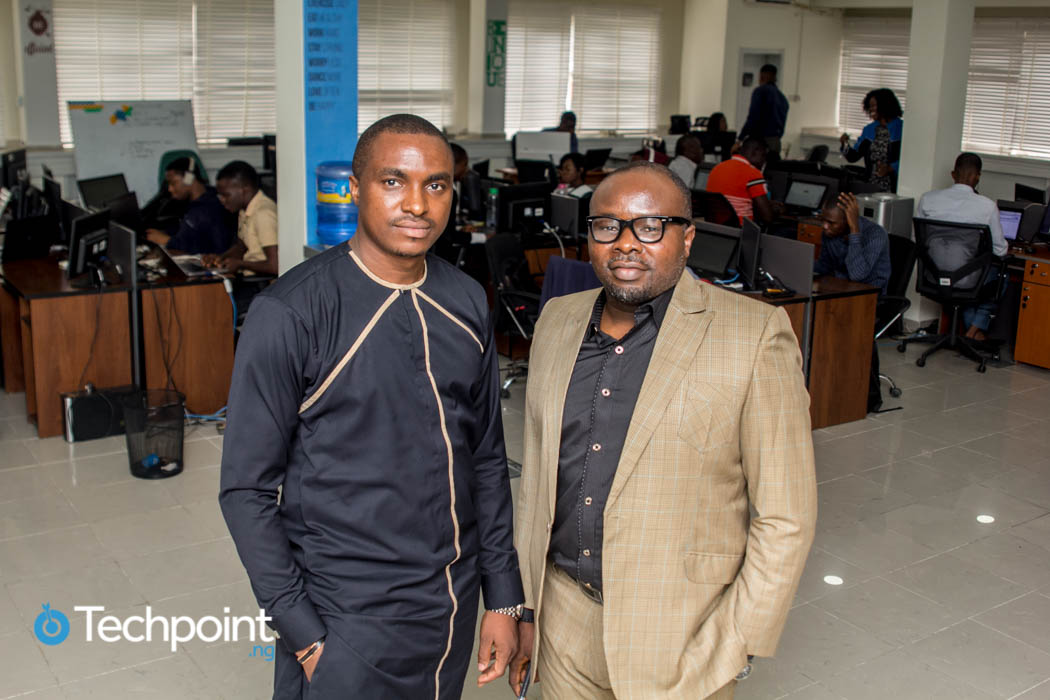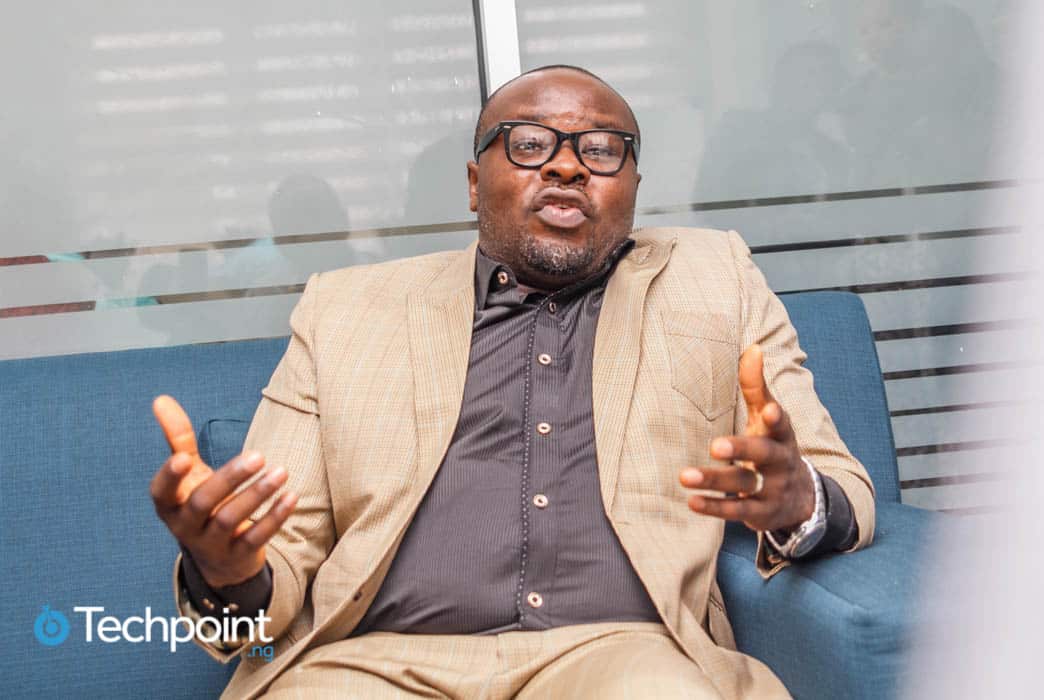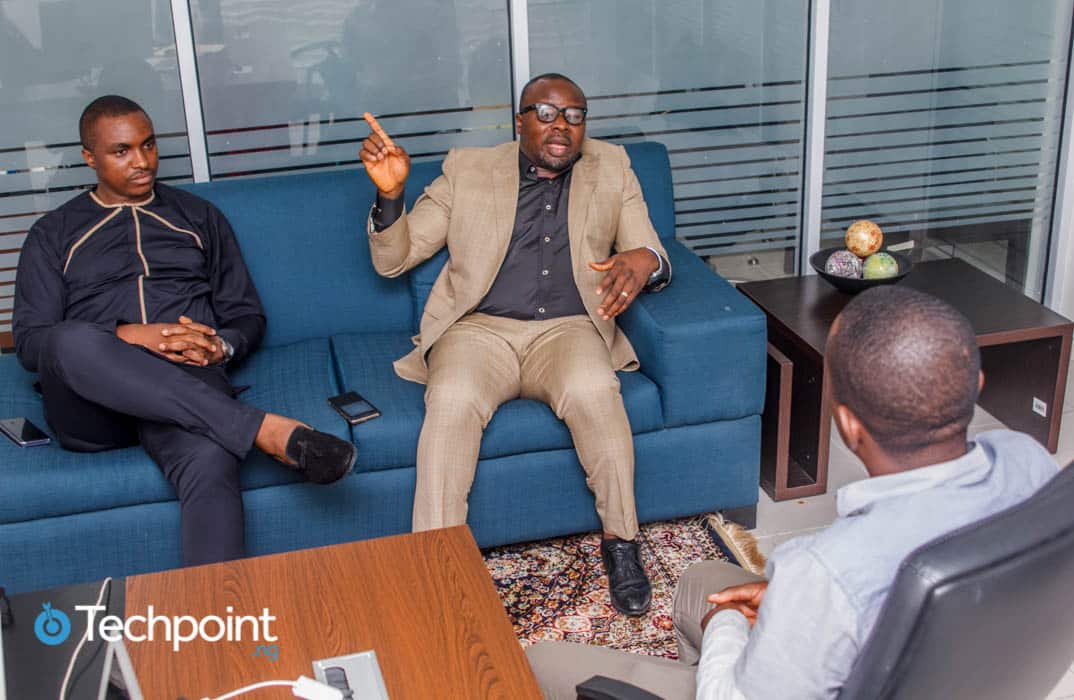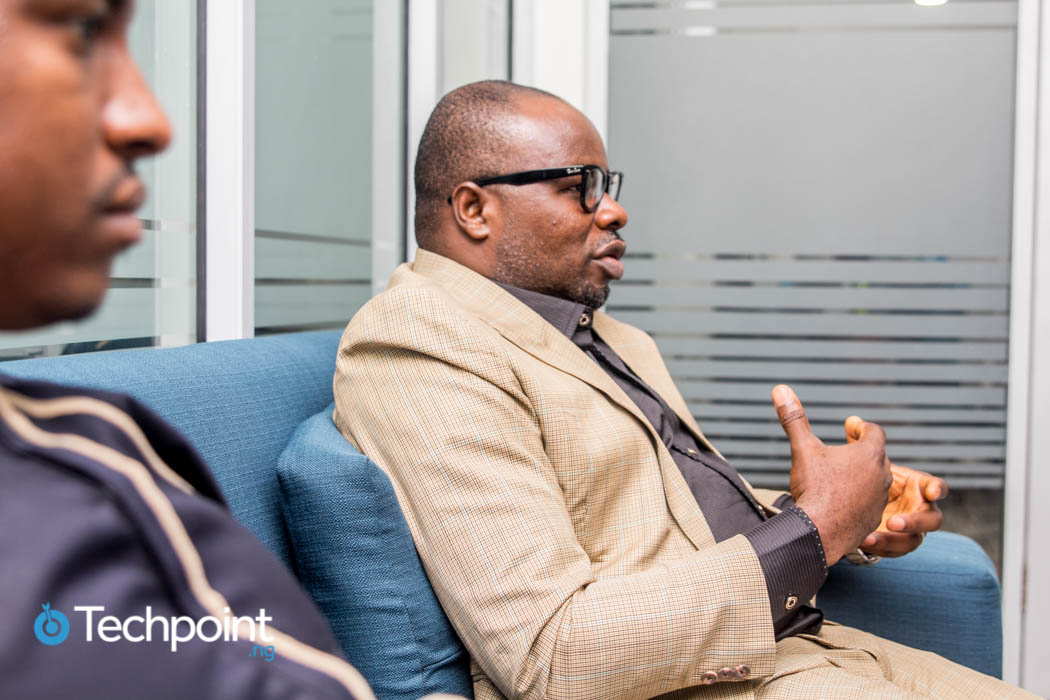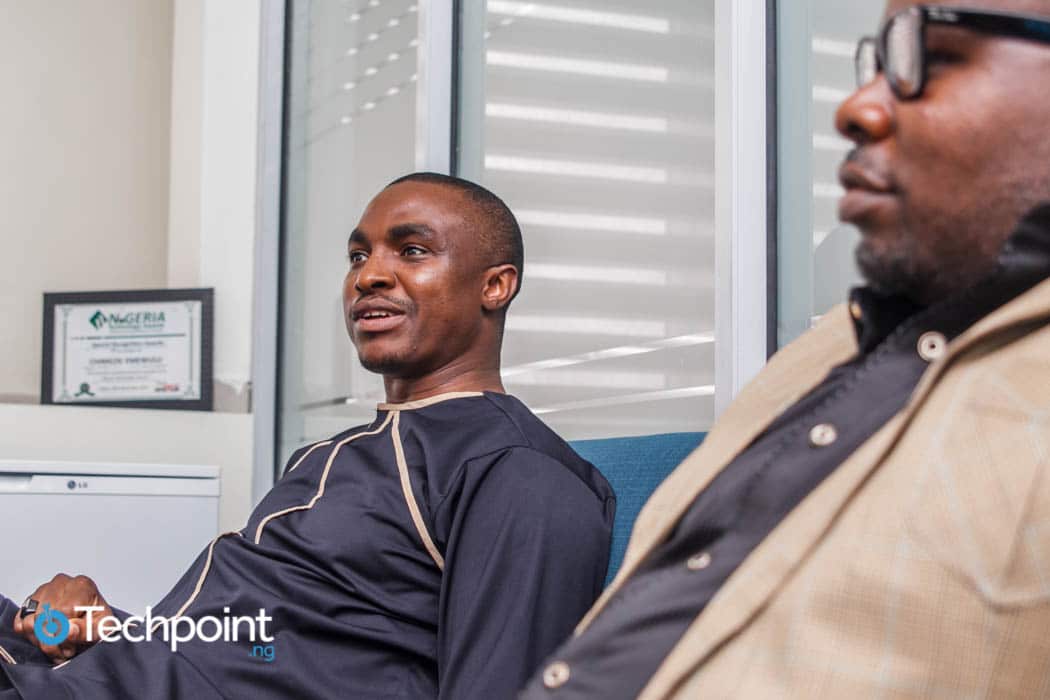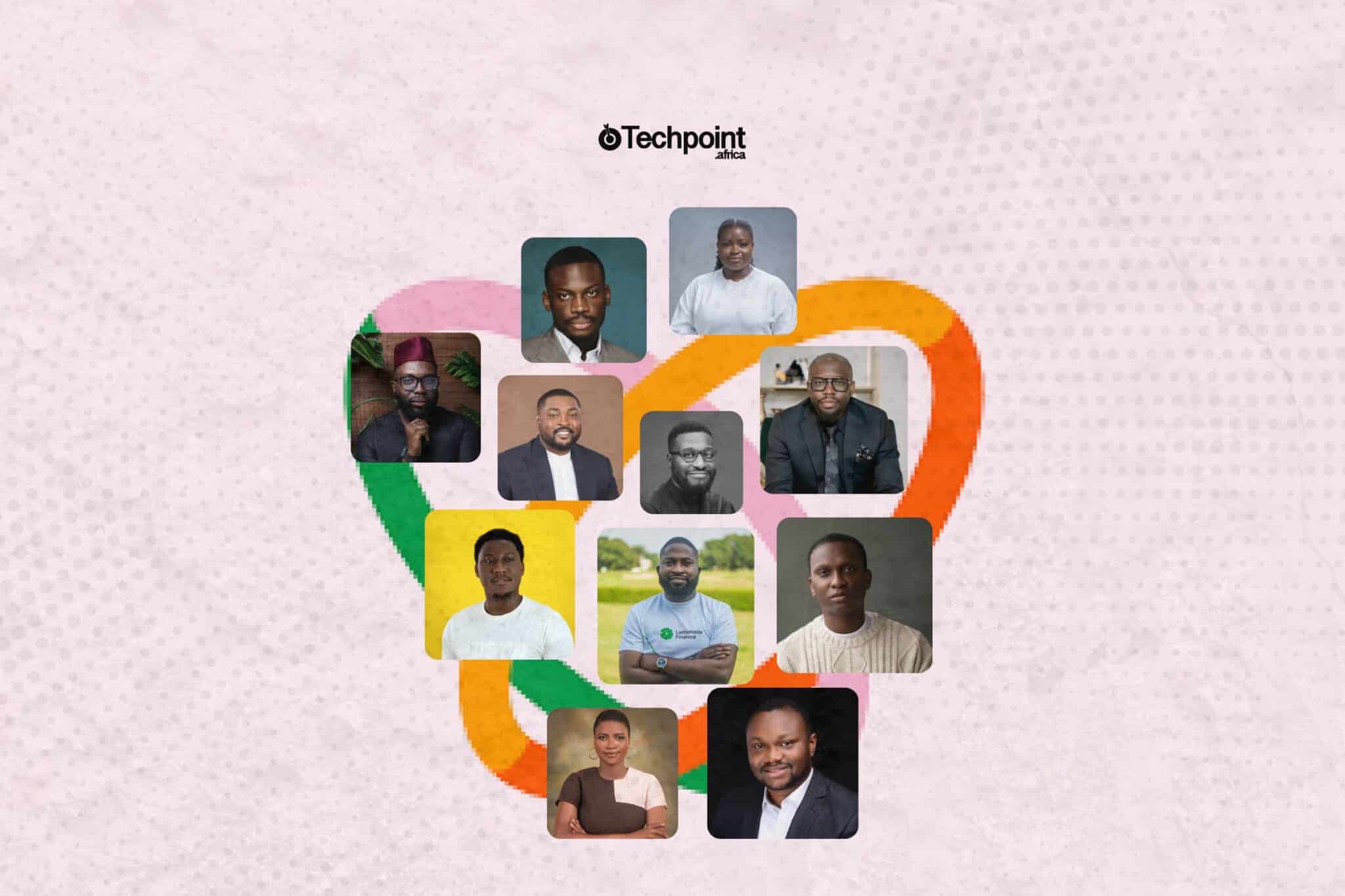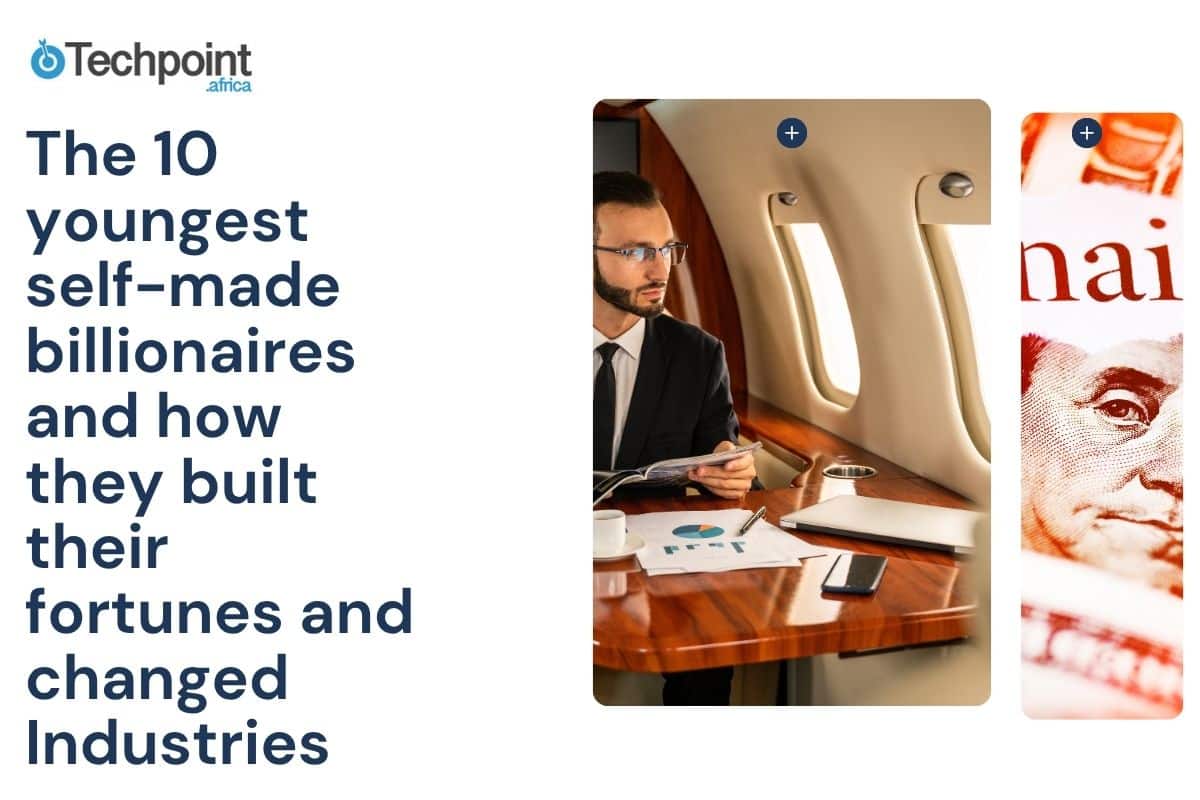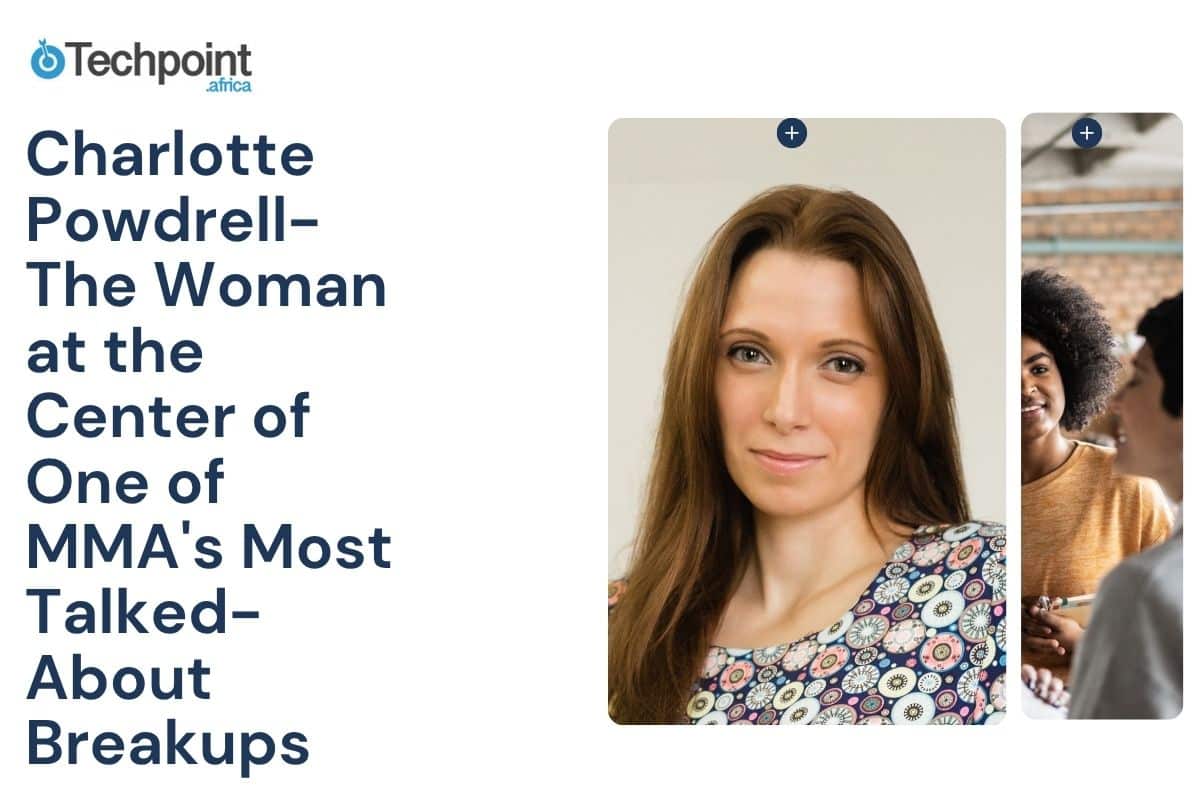A decade ago, Chimezie Emewulu and Chibuzor Onwurah left behind impressive academic degrees and a promising professional career to pursue their passion for solving problems using technology. They founded Seamfix, a leading provider of technology solutions and services in Nigeria and Africa.
“Our vision is to build platforms that enable millions of businesses and individuals to be able to achieve more on a daily basis”, Chimezie told me during a recent interview at their office in Lekki, Lagos.
Both of them took the time to chat about their passion, struggles and philosophy on entrepreneurship.
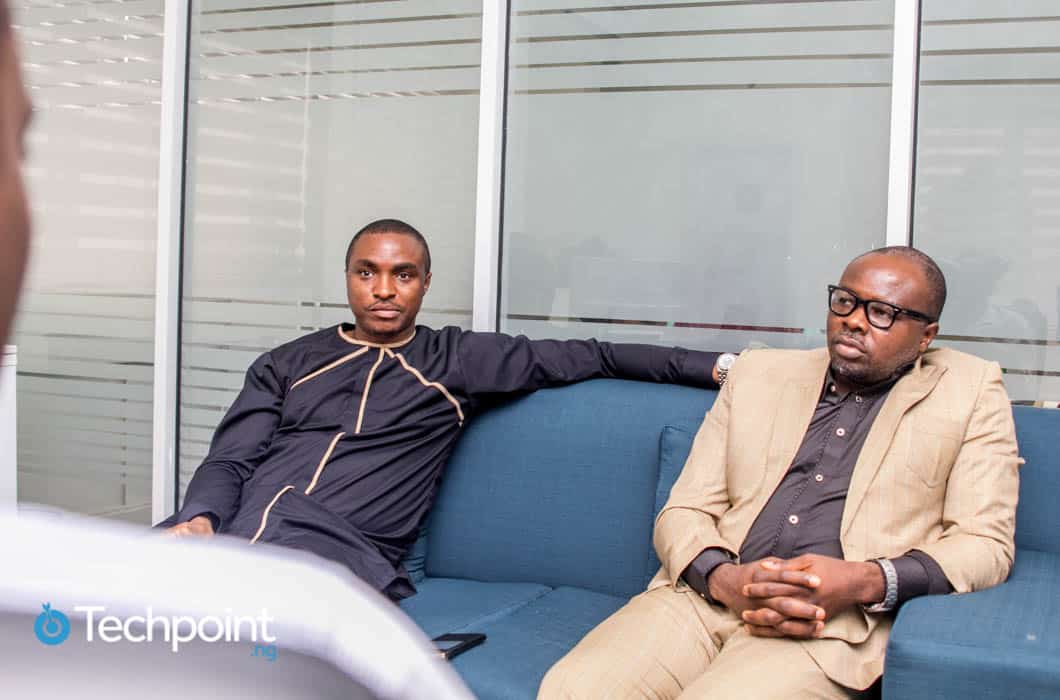
Muyiwa Matuluko of Techpoint (MM): How did you first meet?
Chibuzor Onwurah of Seamfix (CO): We were in our first year at the University of Nigeria, Nsukka (UNN), in the same class with hundreds of other students. So we didn’t really get a chance to know each other one-on-one.
Our first true encounter happened to be at a centre close to, but not quite affiliated with, the school — the Uhere Study Centre — where we were both taking extra computer classes. I think we actually got close after we received our first assignment for the holidays. I can’t quite remember what it was.
Chimezie Emewulu of Seamfix (CE): It was to build a 16-bit compiler in C language.
CO: I hadn’t worked on it much all through the holiday. I tend to be a bit competitive so I never really want anybody to outshine me [Chimezie laughs]. So when I found out, a month to resumption, that Chimezie had made a lot of progress, I got to work on it immediately.
I soon realised how passionate he was about programming and we began to bounce ideas off each other.
MM: I’m guessing it was around this time the idea for Seamfix came up?
CE: Actually, the idea for Seamfix came while we were in NYSC camp — we both served in Lagos. The boring routine of camp served as a period of reflection for us. After camp, we happened to be posted to the same Eti-Osa local government, albeit different places of assignment. We only started building Seamfix towards the end of our service year.
MM: How did you get the funding to start?
CE: We — I, Chibuzor and a couple other partners that started with us but later left to pursue other dreams — contributed a total of ₦75,000 (about $500 at the time) from our savings. Our office was the sitting room in our collective flat, with the dinning table as a makeshift desk.
But in those days, things weren’t really picking up. It got so bad that even feeding was a challenge. So I started hawking honey we sourced from Nsukka, donning my Youth Corper uniform, at the local market. With that, we were able to get just enough money to fuel our ‘I better pass my neighbour‘ generator so we could code throughout the night. We iterated through that until we were able to raise some money to buy a Danfo that brought us a more steady income that enabled us feed and focus on what we were supposed to do.
CO: I’m really thankful for Chimezie’s mum who supported us with the sourcing of the honey. Now that I look back, I really don’t know how he managed to pull that off.
CE: Selling honey in my Youth Corper uniform actually helped me overcome my fear of rejection.
MM: I was going to ask how your parents were taking all of this but it seems there was a bit of support from them?
CO: Initially, my parents didn’t understand what I was doing. Here I was, a first class graduate letting go of many opportunities available to me. They just couldn’t fathom it.
One day, it got so bad that all we had left to eat was two packs of Indomie. I couldn’t take it anymore; I took off to my parents’ to ask my dad for a loan of about ₦100,000, which I eventually paid back. It’s funny because, I didn’t need to ask for a loan. But I wanted to prove a point that what I was doing was going to work.
He eventually realised that I wasn’t going to accept any handouts. So he went and got me a second-hand car under the guise of a ‘graduation present’. But we both knew that this was his way of trying to also support the business.
CE: That car came in very timely though. We used to ‘fly’ bikes from Ikota to CMS — where we usually had a presentation to do — almost on a daily basis. That was a lot of risk. I remember one of our friends had an accident and sustained a spinal cord injury on that same road. The car was a huge relief.
MM: How were things on your parents’ side Chimezie?
CE: Technically everybody I knew thought I was crazy. My own dad told me “if you do this, you’re going to need money and when you need money, I don’t have any to give you”.
When we were hit by that drought Chibuzor talked about, the reality for me was that I couldn’t go back to my dad to ask for money because he had warned me ab initio. In fact, throughout that period, I just went incommunicado. At a point they got really worried. But is it not if you have airtime on your phone that you can make a call?
MM: But how did you convince your mum to assist in the honey business. Wasn’t that move sort of enabling your decision?
CE: Our parents’ decision wasn’t against us surviving. It was basically that young people our age who graduated with good classes of degree (I made a very high 2:1) shouldn’t be doing what we were doing. In retrospect, we realise now that everything they did was purely out of love and concern.
MM: But what gave you guys the strong conviction that you were on the right path?
CO: Some of our predecessors at the Uhere Study Centre — like Chukwuemeka Afigbo — were part of the founding team of Socketworks.
Chimezie started working with Socketworks the Monday after the weekend we graduated from UNN. I decided to join C2G because they were offering higher. It was during these few months that we got to realise the huge potential in this programming thing we were playing with in school.
Also, Socketworks proved to us that young people could actually come together and do something great. Yes, they were led by Aloy Chife, a much older man who was formerly a VP at Apple. But a lot of the people on the team were young.
We felt we had skills which we could express more openly away from where we were working. Did we have any particular problem we wanted to solve? No? We just knew there were a lot of problems in Nigeria that could be solved by technology. It was much later we started to find focus and streamline our services into our core business strength.
MM: But you were just two young guys, fresh out of school with little to no track record. How did you get potential clients to work with you?
CE: We had to pay our dues. This meant doing some work at grossly under-priced value, just to get our foot in the door.
This could have worked out either way but were fortunate that some people were willing to take a bet on us. And somehow, we just managed to deliver on our jobs so excellently. I think it’s because we were hungry; we needed money to eat and pay off debts. I didn’t mention earlier that when we started, we had to borrow laptops from a supplier. One time, our ‘I better pass my neighbour generator’ fried our power packs; so we had to borrow new power packs too. It took us a year to pay off the entire laptop debt.
MM: You’ve shared quite a story. Do you have any advice for upcoming entrepreneurs?
CO: If you have an opportunity for synergy, grab it.
Figure out your vision and what value you want to add to the market, then have the tenacity and the patience to grind it out. But don’t dwell on the details because that can take you a lifetime of experimenting. If everybody knew exactly what they would turn out to be at the beginning, I don’t think many of us would have started.
In all things, anchor your faith in God. We have a very strong belief that nothing we do is of our own power.
CE: I agree with Chibuzor. It’s like Master Yoda, of Star Wars fame said, “Do or do not. There is no try.”
A lot of people want to start a business and still hold on to their prized job at the same time. In the end, both the prized job and the business suffer. It usually takes them being sacked for them to focus on their business. Now I’m not saying everyone should quit their jobs. But if you must start a business, start early.
I also want to emphasise the importance of bootstrapping. When we started, we weren’t burning any investor’s funding. Lots of people these days think they need to raise funds before they start. But the reality is that money will always come when you’ve figured out what you are going to do with it.
CO: I should add that passion is extremely important. That is what will keep you going even when you can’t afford to.

